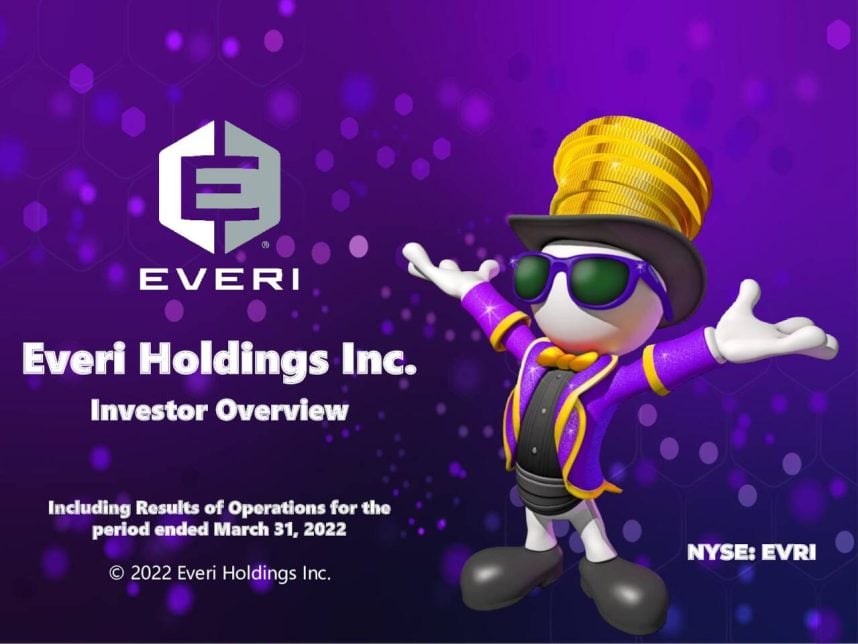Deutsche Bank Running $4.3B Funding Deal for Apollo Everi/IGT Buy
Posted on: August 28, 2024, 07:42h.
Last updated on: August 29, 2024, 10:18h.
German banking giant Deutsche Bank AG is said to be running a $4.325 billion bond/loan deal that will, in part, help finance Apollo Global Management’s (NYSE: APO) recently announced acquisition of Everi (NYSE: EVRI) and International Game Technology’s (NYSE: IGT) global gaming and PlayDigital units.

Unidentified sources with knowledge of the matter told Bloomberg that as of yet, the size of the bond and leverage loan aren’t known. Last month, Apollo surprised investors when it announced a $6.3 billion offer for Everi and the two IGT businesses. In February, IGT and Everi announced a $6.2 billion deal that would have resulted in the slot machine manufacturer merging with the pair of IGT units.
Under the terms of the Apollo proposition, the private equity firm will pay $4.05 billion in gross proceeds to IGT and $14.25 a share to Everi investors.
Prior to Apollo emerging as a suitor for those entities, IGT had struck an agreement with Deutsche Bank and Macquarie Capital for $3.7 billion in financing to acquire Everi and combine the Las Vegas-based gaming device maker with its global gaming and digital operations.
Timeline for Deutsche Bank Funding for Apollo
Deutsche Bank and Macquarie, which is also involved in the financing effort, have some time with which to orchestrate bond and leveraged loan sales for the Apollo financing because when the private equity firm announced its plans for the acquisition, it said it expected the transaction to close in September 2025.
The banks have until then to launch the high-yield bond and leveraged loans, according to Bloomberg. High-yield corporate debt, also known as junk bonds, are those bonds that don’t carry investment-grade ratings. As a result, issuers must sell that debt with higher interest rates to compensate investors for increased levels of risk.
Leveraged loans are typically extended to junk-rated firms and, as a result, those loans also carry interest rates to compensate lenders for the added risk. One of the advantages of leveraged loans is that they are backed by floating rate instruments, meaning they’re often less sensitive to changes in interest rates than are fixed-rate bonds.
These instruments are frequently used to extend credit to buyers in mergers and acquisitions and can secured by assets including property, equipment, and intellectual property.
Speaking of Interest Rates …
It’s possible that Deutsche Bank and Macquarie are waiting on the Federal Reserve to lower interest rates before actively marketing the junk bond and leveraged deals on behalf of Apollo. It’s widely expected the central bank will do that next month, perhaps by as much as 50 basis points.
That would likely result in lower financing costs for high-yield issuers, though the average interest rate on highly rated junk debt has steadily trended lower over the past 10 months.
“US High Yield B Effective Yield is at 6.63%, compared to 6.62% the previous market day and 8.53% last year. This is lower than the long-term average of 8.48%,” according to YCharts.
Related News Articles
IGT Stock Surges on Rumor Apollo Mulling Bid for Gaming Unit
IGT Downgraded as Strategic Review Turns Sluggish
Light & Wonder Bids Anew for SciPlay, Offers $422M
Entain Draws Activist Action, New Investors Want Ricky Sandler on Board
Most Popular
FTC: Casino Resort Fees Must Be Included in Upfront Hotel Rates
Genovese Capo Sentenced for Illegal Gambling on Long Island
NBA Referees Expose Sports Betting Abuse Following Steve Kerr Meltdown
UPDATE: Former Resorts World & MGM Grand Prez Loses Gaming License
Most Commented
-
UPDATE: Whiskey Pete’s Casino Near Las Vegas Closes
— December 20, 2024 — 31 Comments -
Caesars Virginia in Danville Now Accepting Hotel Room Reservations
— November 27, 2024 — 9 Comments -
UPDATE: Former Resorts World & MGM Grand Prez Loses Gaming License
— December 19, 2024 — 8 Comments -
FTC: Casino Resort Fees Must Be Included in Upfront Hotel Rates
— December 17, 2024 — 7 Comments
















No comments yet